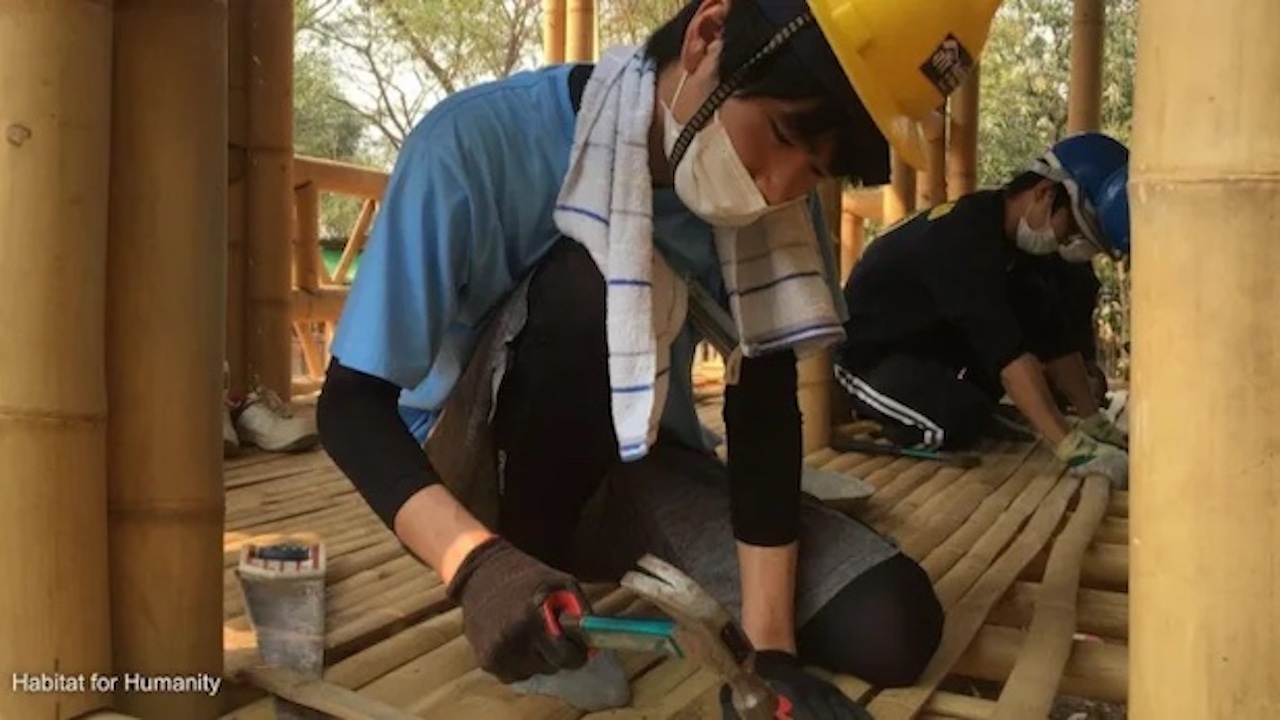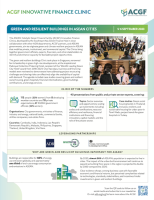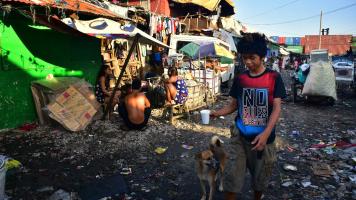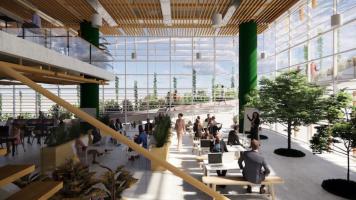
Over half a billion people live in slum conditions in the Asia–Pacific region. Photo courtesy of Habitat for Humanity.
Governments, the private sector, and civil society urged to come together to craft solutions in providing affordable housing for all.
This article is published in collaboration with Habitat for Humanity.
The need for innovative and affordable housing solutions has gotten bigger following the pandemic and continued climate crises, Luis Noda, vice-president for Asia–Pacific at Habitat for Humanity International said.

Before the pandemic, about 1.6 billion people were already in need of adequate shelter. In the Asia–Pacific region, over half a billion people live in slum conditions. Job losses and economic hardship during the coronavirus disease (COVID-19) pandemic—alongside extreme weather events—means those figures are much likely to be higher today.
Noda said governments must ensure affordable housing is integrated into national development strategies as well as COVID-19 recovery plans.
Habitat for Humanity organized the Asia–Pacific Housing Forum to put a spotlight on the issue. The event took place on 7– 9 December.
Many pandemic emergency response measures have shown that the right to housing can be realized when governments put it at the center of their political agenda. Ahead of World Cities Day, this op-ed outlines three actions that can be taken.
“We're calling on governments, the private sector, and civil society to come together so that we can craft solutions that are adequate and contextualized for the problems that we’re facing in the different locations we're working,” he said, adding that investments in housing solutions would yield gains in urban development, employment, economic recovery and growth, and individual health.
According to a report by Habitat for Humanity, every $1 million invested in construction is estimated to result in 26 to 119 direct jobs and 16 to 83 indirect jobs.
Speaking to Devex, Noda explained what innovative housing solutions might look like, the role each stakeholder has in creating them, and what he hopes will come from the forum.
This conversation has been edited for length and clarity.
The theme of the Asia–Pacific Housing Forum is “building forward better for inclusive housing.” What does that mean?
It highlights the urgent need to build sustainable and affordable housing through an inclusive approach. This means that everyone not only has access to a decent place to call home but also has a voice in the process of accessing that.
We would like to continue using a people-centered approach to create solutions that bridge that housing gap. It's more than just a nice to-have. We believe it's a central element of the creation of solutions in the housing sector because it enables us to expand the sense of ownership. It also helps us to increase the level of sustainability of the solutions that are being created, and it helps people to identify themselves in those solutions. It also means building forward in a greener, safer, more resilient, and inclusive way.
What does inclusive housing entail and why is it important now?
Housing solutions are not developed in isolation and don’t depend on only one actor in the society—whether this is government or private actors. It's actually an ecosystem that exists that either perpetuates the housing deficit and gap or creates solutions in order to overcome the gap. Understanding that ecosystem is important for us to find inclusive housing solutions. What we're trying to convey by these inclusive housing solutions is that we would like to democratize the access of housing for people [in order] to reach the most vulnerable people in our societies.
This is even more important now... with the current global pandemic. The people that are getting the worst of the pandemic are the people... living in hard conditions. They’re the ones experiencing losing their income... and the ones bearing the worst consequences of the pandemic related to health, education, and so on because they live in settings where population density is so dense that it's conducive for the transmission of the virus.
At Habitat for Humanity, we recognize that marginalized groups or vulnerable people are disproportionately affected, not only by the current pandemic but by climate change as well.
At COP26, Habitat for Humanity will convey the message that stakeholders need to incorporate adequate and affordable housing into future planning for climate change. We’re requesting it be included in two ways. First of all, put the people most impacted by climate change at the center and ensure that mitigation efforts in the built environment and housing sector don’t drive up costs and further expand the global deficit of adequate and affordable housing.
Secondly, to ensure adaptation that protects communities and natural habitats in a way that's inclusive of the needs of the most vulnerable. Adaptation in housing is definitely integral in preparing communities for rising sea levels, droughts, floods, heat waves, and increased intensity of weather events.
How does a lack of inclusive housing impact health and economies in Asia–Pacific?
We don't have to look further than ourselves or our families to see the importance of housing and how it’s connected to our well-being... Improvement in housing conditions has been demonstrated through studies by the World Health Organization. Results from medical journals show how improved housing reduced by around 40% the mortality of children under 5 and reduced by 44% the incidents of respiratory infections, gastrointestinal illness, and malaria. We also know that viruses have a disproportionate impact on slums. Last year, a study in Mumbai found COVID-19 to be more prevalent in slums versus non-slum areas. Researchers have found the same to be true with influenza transmission.
The other thing that we see as important—and it's highlighted by COVID-19—is the impact on women and girls. An increase of gender-based violence [has been reported] because of the pandemic... Living in very small spaces, needing to share the space with children and other people, can exacerbate problems in relationships. Women and girls, [as] those excluded from opportunities, in many cases are subject to harassment and aggression. This translates into gender-based violence.
On top of all of that, it's the safety that a home, house, or neighborhood can provide you [with]... Then there's a correlation between educational achievement and the fact that somebody has a home. It's very well studied that when children have a place to do their homework, focus with enough light, and with an environment that's conducive for study, they perform better at school.
People that are in good health status are [also] more productive for themselves and for the economy.
What actions should governments, as well as those in the development sector, be taking to ensure they are contributing to the “building forward better” agenda?
Governments and those in the international development sector, especially the housing development sector, should invest resources and create an enabling environment. I think that there is a need and a call for us in all the societies and places where we work... to reduce red tape and bureaucracy related to access to housing. It shouldn't be that difficult to overcome hundreds of paperwork and permits that need to be done in order for house construction to take place. We’ve seen examples of that reduction of red tape, the creation of investment resources, the connection between the public sector, creating incentives for the private sector to be part of the solution, I think it's important. The government, as the World Bank says, needs to be a promoter for the creation of better housing opportunities, and the private sector needs to be the actor that implements those solutions and brings those solutions to society.
We need as well, in the case of the government, processes that help people attain land and tenure security... In many societies, there are groups of people that don’t have access to land where they can safely build their homes. It's this aspect of being aware of the world in which we’re living in, and incorporating climate change adaptation and mitigation [that are] key components of national and local housing policies.
This article was first published by Devex on 20 October 2021.

Habitat for Humanity
Driven by the vision that everyone needs a decent place to live, Habitat for Humanity partners with families and individuals to build or improve a place they can call home. Founded in 1976, Habitat has since grown to become a leading global housing organization working with partners in local communities in more than 70 countries. To learn more, visit habitat.org.


